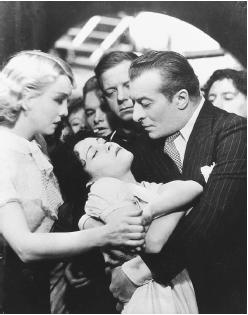
By Eric Jessen 7/30/09
James Cameron's Aliens is a tasty regurgitation of Ridley Scott's Alien (1979) retaining all of our favorite ingredients from the original but lacking the fresh, smooth, rich purely sensational aura of new. Watching Aliens is like riding a roller-coaster a second time with the ups and downs, twists and turns: a raucous, impossible to catch your breath thriller. It's an extraordinarily faithful sequel with a more vivid, ghastly close-up of the alien, a lot more Sigourney Weaver as Ripley, even expanding on the first films fascinating underbelly.
The methods are cliché and the journey is predictable and yet Aliens is an undeniable experience. Ripley joins a crew ship of soldiers heading to the dreaded alien filled KV-426 rock (the set of the first movie) as a “consultant.” The cocky, self-declared “ultimate bad ass” troop venture into the alien haven talking a big game, confident, ignoring Ripley's warning, packed with big, bulky guns. Of course, they are no match for movies most evil, destructive creepy crawly bug. Ripley and the few remaining soldiers resolve to cut bait and “nuke the site for morbid” (only 45 minutes in, with still half a dozen people other then Ripley alive, obviously that plan was laughable). Just as they're leaving, their ship is attacked by aliens leaving them stranded.
I know which characters are going to die and when (everyone by the end, or when they wander off alone, except Weaver and children or pets). I know what the aliens look like having seen the first movie, and how they kill; they lunge, flipping and flopping, popping up from the ground, slithering around vents and ducts: acid blood, yucky, slimy, with a tongue that bites. I know from the first film that there will be at least one human to fear - the backstabber – although I also know he'll eventually get his comeuppance. Aliens mimics the original movie's story in almost every way, even the ending: the countdown, she barely escapes the exploding rock, exhale.....but oh wait, there's an alien on board the ship! I saw everything coming. And yet...... It scared the daylights out of me. My stomach was tumbling, rumbling, I could hear the swishing and swashing of fluids, my ear-drums were ringing, goosebumps, everything tingling: awesome. I love the movies.
But I sat back and thought.......Those weapons looked so stupid and ugly. Much of the movie looked like a cheap knock-off of Halo. Some of the acting and the dialogue were awful. One of the characters was so dumb and annoying, whining and whining, begging to die and yet I waited and waited. He threatened to halt the movie in its tracks. Finally he got eaten and I was relieved. The 154 minutes flew by but it dragged to the limits explosions, guns and sticky aliens, and banged through the characters. The first movie gave me sufficient inklings of the nature of the supporting cast which made me care more when they died. This movie brushes over the supporting players, leaving me with stereotype, cliché, throw-away inevitable corpses.
I thought more.... Aliens focuses on Ripley and that's what counts. The more screen time for Weaver the better. She's spectacular, the ideal female fire-wielding hero. In Aliens the depth of her character is enriched. She's the queen bee of the strength, the leader, the mother, the captain, doing battle with an unstoppable villain, meeting a perfect match. From the first film Ripley begins a love affair with the alien. In the final scenes of the first movie she faced the alien in close quarters: Weaver stripped down to her underwear with the alien lathered in goop lurking in the dark background. They have a strange intimate relationship, a mutual respect and hatred. When Ripley descends via elevator into the flickering depths among the aliens at the end of the sequel (claiming, she only wants to save the child), she licks her lips and smirks, salivating a last chance to stare eye to eye with the alien.
Aliens plays like a video game. It's a rowdy, rambunctious, slam bang roller-coaster regurgitation and it's undeniably fun.



























